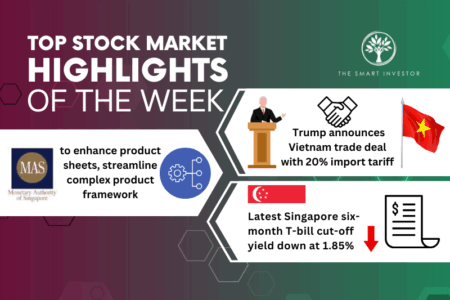Part 4 of Phillip Fisher’s stock investing checklist introduces yet another three characteristics that the legendary growth investor looks for in companies.
You can read Parts 1, 2 & 3 here, here and here.
10. How good are the company’s cost analysis and accounting controls?
It can be pretty tough for an investor to find out if the company has good control over its costs.
These controls are normally handled by the accounting department of each company, to which the investor may not have access.
What the investor can do, however, is to use metrics and ratios to determine if costs are being controlled effectively or if they seem to be spiralling out of control.
Compute the company’s operating margin and compare this against rivals.
You can also look at a five or 10-year history of the company to see if costs have ballooned or have been well-controlled.
Another option is to speak with the CFO if possible, or if not, then the next best thing is to look up his history and check out his track record.
11. Are there other aspects of the business, somewhat peculiar to the industry involved, which will give the investor important clues as to how outstanding the company may be concerning its competition?
This question is phrased in rather broad terms and Fisher is referring to specific industries and their unique characteristics.
It assumes that investors can gain knowledge of practices for certain companies that give them an edge over their competitors.
Some of these traits can be gleaned from direct observation.
For example, a restaurant may have a successful loyalty program that attracts customers to its food and/or service, thereby encouraging repeat visits.
As repeat customers may increase their spending per visit over time, the restaurant may exhibit a higher profit margin compared to its peers.
By understanding the details of the loyalty program and why it has been so successful, the investor can then better appreciate why this restaurant chain is displaying much better numbers than its competitors.
An example of this is Tractor Supply Company’s (NASDAQ: TSCO) Neighbor’s Club loyalty program.
Since the US rural lifestyle retailer rolled this out nationally in October 2015, it has garnered more than 26 million members.
This group makes up 70% of the company’s sales with a retention rate running over 80%, so the business must be doing something right with its loyal base of customers.
12. Does the company have a short or long-range outlook in regards to profits?
This is an important attribute that investors should seek to find out.
Is a company’s management motivated mainly by short-term forecasts and goals?
Or are they willing to sacrifice profitability in the short-run to invest and grow the company for the future?
Investors can get some hints from actions taken by management.
For example, a company that obsesses over quarterly earnings guidance frequently comments on whether it had managed to beat them.
This is a dead giveaway that tells you that management is short-term focused.
On the other hand, companies with a long-term outlook typically do not harp on quarterly earnings.
Instead, they focus their energies on setting long-term targets and making strategic investments in areas that may only yield results many years down the road.
This is termed “short-term pain, long-term gain”, and it’s a rare attribute to observe in top management.
How do you decide if a growth stock is worth your money? There is no shortage of stock ideas today, but is a particular stock suitable for you? Find out more in our latest FREE report, How To Find The Best US Growth Stocks For Your Portfolio. Click HERE to download the report for free now!
Follow us on Facebook and Telegram for the latest investing news and analyses!
Disclaimer: Royston Yang owns shares of Tractor Supply Company.




